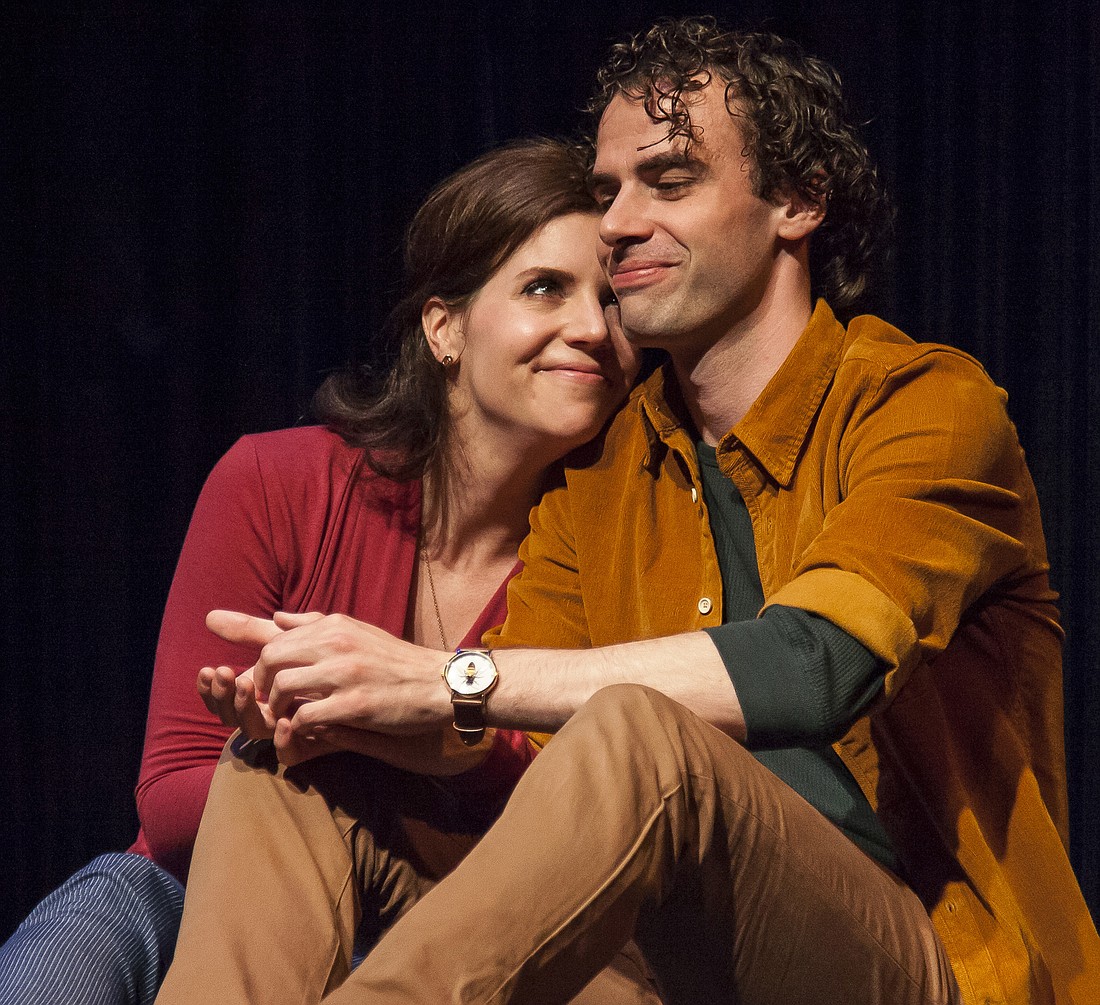- December 18, 2025
-
-
Loading

Loading

Multiverse theory says reality resembles a story by Jorge Luis Borges. Time is a garden of forking paths. The path you walk is a matter of choice or chance. But the possible paths are infinite.
This may sound like the ravings of poets and Argentinian fabulists. But cutting-edge quantum physicists hatched the concept. It’s not so easily dismissed.
Yasmina Reza explored this notion in “Life x 3.” Nick Payne’s “Constellations” goes several steps further. His play is Florida Studio Theatre’s latest Stage III production. And it’s quite amazing — in the original sense of the word.
Payne’s play is, paradoxically, spoiler-proof. I can tell you the plot right now and not give anything away. Basically …
Everything happens.
Boy meets girl; boy gets girl. Boy meets girl; boy loses girl. Boy …
Etc.
Not having infinite running time, Payne gets this idea across with (as best as I can count) sixteen permutations. But you get the idea.
The action unfolds in contemporary London. Marianne (Alexis Hyatt) and Roland (Chris Tipp) meet cute at a barbecue. She’s a physicist; he’s a beekeeper. She tempts him with the oddly flirty suggestion of licking elbows. (God, it seems has made that impossible, as it would reveal the secret of immortality.) Marianne and Roland make ridiculous attempts at this anatomically impossible act. Then lights flash. The scene rewinds to the beginning, then resumes and plays a little differently.
This keeps happening throughout the play.
The scene structure resembles the improv game: “Should’ve said.” A line of dialogue spins the story in one direction. Lights flash. The dialogue is revised; the story veers in another direction …
In the hands of a lesser writer, this could easily turn gimmicky. But Payne’s dialog never feels false. You never feel like he’s milking a scene for emotional effect. Which makes it all the more heartbreaking when things turn out badly.
Some endings are happy. Some aren’t.
With infinite possibilities, that’s the way it works.
Jason Cannon’s direction walks the razor’s edge of compassion and heartlessness. The play’s fractured realities are supposedly random. As if a machine, not a playwright, was responsible for what you see. You care, because the entity behind the show doesn’t. It’s quite a hattrick, and Cannon pulls it off.
Along with their spot-on British accents, the actors deliver excellent, nuanced portrayals of their two (or 32) characters. They convey a sense of lostness. “How did I get here? How do I work this?” As the Talking Heads once said.
Payne is very smart playwright — smart enough to know the limitations of intellect. His play raises questions it can’t possibly answer about free will and destiny. The questions it raises about compassion aren’t intellectual. And not so easily avoided.
In some futures, everything goes your way.
In other futures, nothing goes right.
Granted a different roll of reality’s dice, the tragic figure on the sidewalk could be you. Or is you.
Depending on your interpretation of quantum theory.